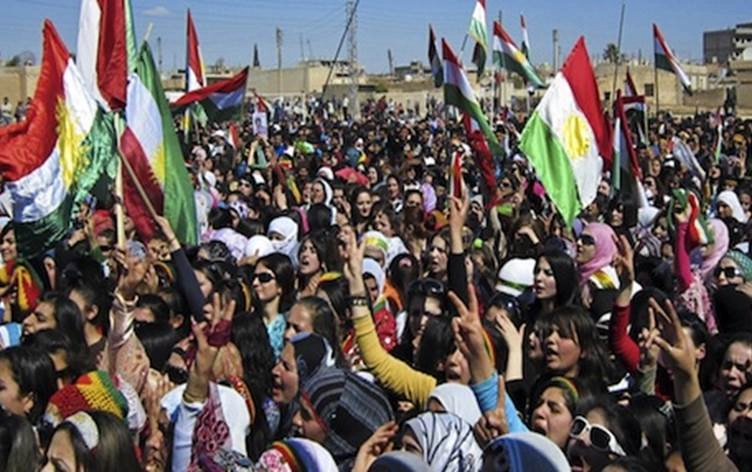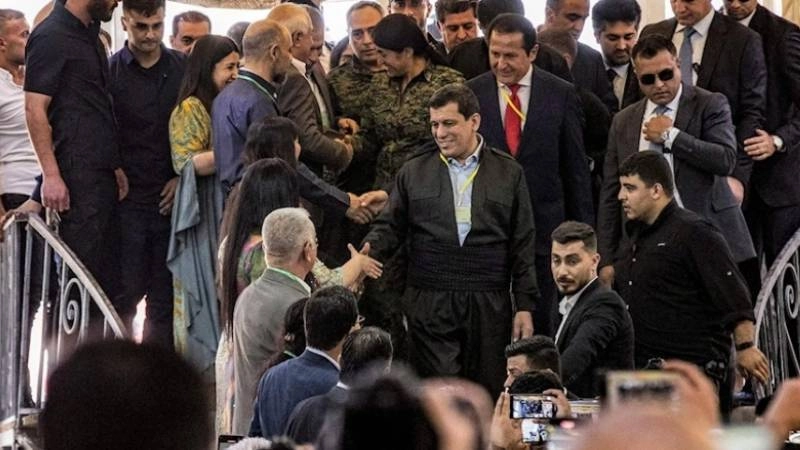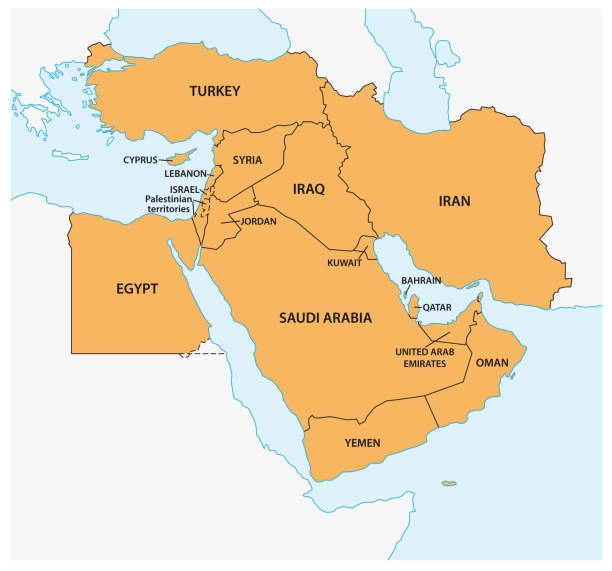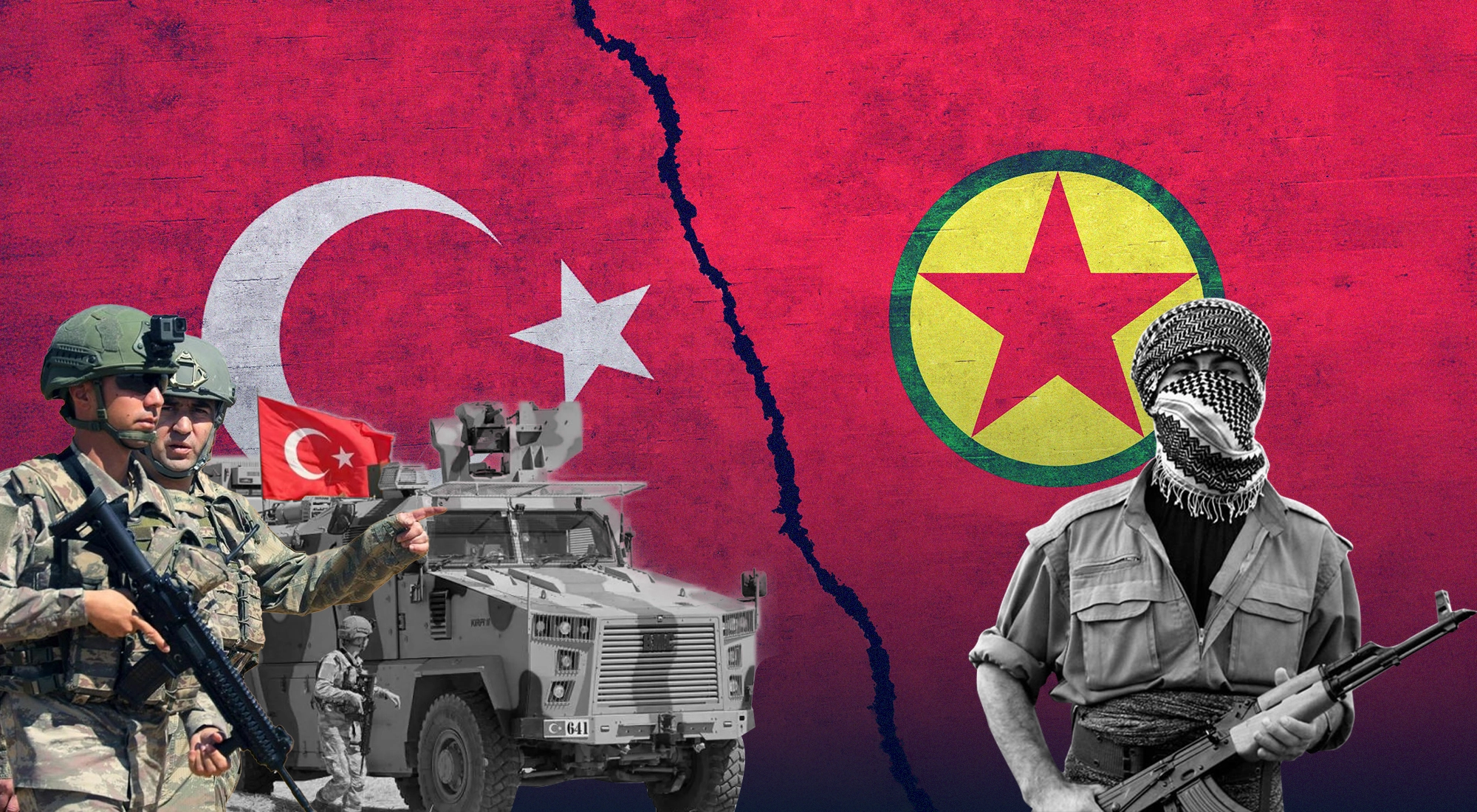In a significant development for Turkey's long-standing Kurdish conflict, members of the pro-Kurdish DEM Party recently met with imprisoned PKK leader Abdullah Ocalan, as the militant group announced plans to destroy its arms. But what does this mean for the future of Turkey's Kurdish question? Why is this happening now, and how might it reshape the political landscape?
The Historical Context of Turkey's Kurdish Conflict
The conflict between the Turkish state and the Kurdistan Workers' Party (PKK) has spanned over four decades, resulting in tens of thousands of casualties. Designated as a terrorist organisation by Turkey, the U.S., and the EU, the PKK has fought for Kurdish autonomy since 1984. Abdullah Ocalan, the group's founder, was captured in 1999 and has been imprisoned ever since.
Despite numerous failed peace processes, Ocalan remains a symbolic figure for many Kurds. His calls for disarmament in recent years have been seen as pivotal moments, though scepticism remains high among Turkish officials. The latest meeting between DEM Party MPs and Ocalan suggests a potential shift in the PKK's strategy, but the road to lasting peace is fraught with challenges.
Real-world example: The 2013-2015 peace process, which collapsed amid renewed violence, serves as a cautionary tale about the fragility of such negotiations.
The Role of the DEM Party in the Peace Process
The DEM Party (formerly HDP) has long positioned itself as a mediator between the Turkish state and Kurdish militants. While officially distancing itself from the PKK, the party maintains indirect ties and has advocated for Ocalan's involvement in peace talks.
This delicate balancing act has made the DEM Party both a crucial player and a frequent target. The Turkish government has accused it of being a political front for the PKK, leading to crackdowns and arrests of its members. However, the party's ability to mobilise Kurdish voters gives it significant leverage.
Practical application: The DEM Party's strategy mirrors other political movements that navigate between armed groups and state institutions, such as Sinn Fein's role in Northern Ireland's peace process.

Why Now? Timing and Political Calculations
The PKK's announcement to destroy arms comes at a time of shifting regional dynamics. Turkey's military operations in northern Syria and Iraq have weakened the group's capabilities, while economic pressures may be forcing a reassessment of its long-term strategy.
For the Turkish government, the timing is equally significant. With local elections approaching and economic challenges mounting, President Erdogan may see an opportunity to claim a political victory. However, hardliners within his coalition remain deeply sceptical of any concessions to Kurdish demands.
Real-world example: Similar disarmament announcements in other conflicts, such as Colombia's FARC, have often been tied to both military pressure and political opportunity.
Challenges to Lasting Peace
While the PKK's disarmament pledge is a positive step, numerous obstacles remain. Verification of arms destruction will be contentious, and splinter groups may reject the process. Moreover, Turkey's demand for complete surrender contrasts with Kurdish aspirations for cultural and political rights.
The status of Ocalan himself is another flashpoint. While some see him as essential to peace, others view any role for him as unacceptable. The Turkish government's willingness to allow DEM Party MPs to meet with him suggests possible backchannel communications, but official recognition remains off the table.
Practical application: Lessons from other peace processes show that successful disarmament requires third-party verification and confidence-building measures on both sides.

Regional Implications of the Disarmament
The PKK's decision could have ripple effects across the Middle East. The group has ties to Kurdish factions in Syria and Iraq, and its strategic shift may alter the balance of power in these conflicts. For Turkey, a resolution could allow it to focus on other regional priorities, such as its tensions with Greece or the Syrian refugee crisis.
However, the involvement of external actors, from the U.S. to Russia, adds another layer of complexity. Each has vested interests in how Turkey's Kurdish question is resolved, and their reactions will shape the outcome.
Real-world example: The PKK's Syrian affiliate, the YPG, has been a key U.S. ally against ISIS, creating tensions with NATO ally Turkey.
What Comes Next? Scenarios for the Future
The path forward remains uncertain. Optimists hope for a gradual de-escalation, leading to political negotiations. Pessimists warn of another cycle of violence if trust breaks down. The most likely scenario may be a messy, incremental process with setbacks along the way.
For ordinary Kurds and Turks, the stakes couldn't be higher. A successful peace process could unlock economic potential and stabilize the region. Failure could mean more bloodshed and polarization.
Practical application: Civil society initiatives, like those in Northern Ireland, show how grassroots reconciliation can complement high-level negotiations.







